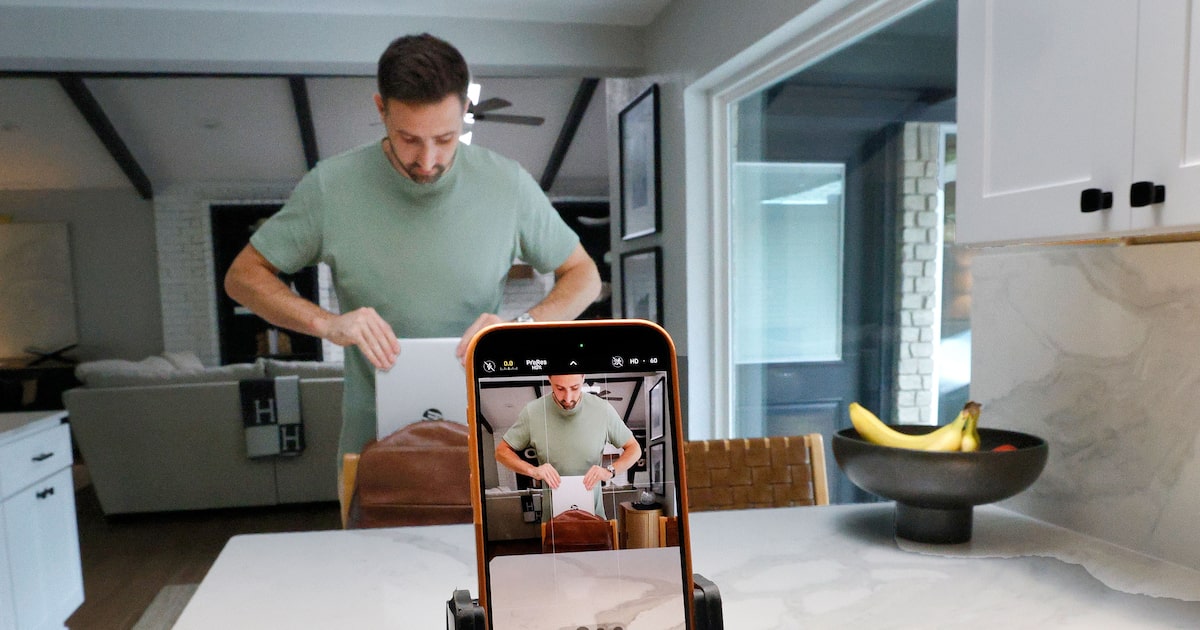Social media, once intended to connect everyday people with each other, has become the land of influencers — but that comes with certain drawbacks, as one Dallas-area figure can attest.
Content creator Connor Hubbard, known as Hubslife online, once endeared himself to his audience with day-in-the-life videos that chronicled his routine as a “normal guy with a 9-5. ”
In a world where people commanding large followings by showing off unattainable lifestyles to strangers for the sake of making money, Hubbard touted the benefits of steady pay, health insurance and work-life balance.
For that, he was rewarded with 1.4 million followers on Instagram, another near million on TikTok and 269,000 subscribers on YouTube.
Business Briefing
That is, until he quit his job, enraging many of his followers in the process, who pointedly called out the contradiction.
In a Feb. 11 video titled “I quit my 9-5,” Hubbard said he’d been “struggling for a while,” with the difficulty of both working a full-time job and the pressures of turning that job into content for 700-plus-straight days.
He rebranded himself as “self-employed” and celebrated hitting 1 million followers on Instagram in early June, writing, “Embrace your 9-5 to create the life you want,” in the caption.
Alas, in an oft told episode of social media cancellation, the comments section quickly filled up with accusations of hypocrisy, disappointment in his change, and general animosity.
Many of the TikToks posted around that time have the comments turned off, influencer-code for waving the white flag in the face of unruly backlash. A search for Hubslife on YouTube yields more video essays about his “downfall” than Hubbard’s own content, and snark threads abound on Reddit.
‘Wouldn’t you if you could?’
Hubbard is far from the first influencer to transition from normalcy to full-time content creation. He tried full-time videography at the start of the pandemic, he told The Dallas Morning News for a story in 2024. But few have prompted as outsized a reaction.
Frisco-based YouTubers Dude Perfect went from college kids doing trick shots to a full-fledge media empire. TikToker Kay Poyer, a very different kind of Dallas influencer, expanded her brash brand of honesty and cultural commentary into a Substack and podcast. Both have enjoyed continued success, growth, and fan support.
Authenticity may be why. As an obsession with this new kind of social capital took over the internet, influencers evolved too, avoiding lifestyle perks like head-to-toe designer clothing and houses in the Hills. They now opt for SHEIN and Amazon hauls, homemade gourmet food and “grindset” side hustles.
Hubbard’s rise as a normal guy influencer is entangled with the tightness of inflation and rising housing costs many people have felt since the pandemic. The ostentatious olden days of influencing are less compatible with an economically-conscious audience.
Despite the backlash, though, maybe Hubbard represents the next evolution of social media authenticity. His TikToks, comments now back on, still garner hundreds of thousands of views and his Instagram posts are still liked by thousands of people. Defenders of Hubbard have started replying to naysayers with: “Wouldn’t you if you could?”
That’s the magic of The Algorithm. Creators guilty of far worse sins than quitting a job still routinely make livings off social media, as algorithms serve up their content to new and wider audiences unaware of past transgressions. For Hubbard, those audiences may find other aspects of his content relatable.
Conservatively, around 10% of the American workforce, more than 16 million people, is self-employed, according to the Center for American Progress. Many of Hubbard’s followers have stuck around for content about fatherhood, weekend yard work and doing tasks for his wife.
Unattainable and idealized in some ways, sure, but representative of a democratized social media landscape. According to The Wall Street Journal, 27 million people in the U.S. claim to be paid content creators, 44% of whom say it’s their full-time job.
As that labor market grows, so too does the money in the industry. Hubbard didn’t respond to request for comment for this story, and last year declined to say how much he made off social media.
In general, though, according to Forbes, the influencer economy is valued at about $250 billion, and Goldman Sachs predicts that number will double by 2027. Those numbers are in the ballpark of the U.S. legal services industry.
It seems anyone can be an influencer; not everyone can live a life of luxury. Hubbard’s videos now portray his “new 9-5″ as he calls it, and maybe he’s onto something. It could be time to see social media content creation less as a form of celebrity, and more like just another job.
